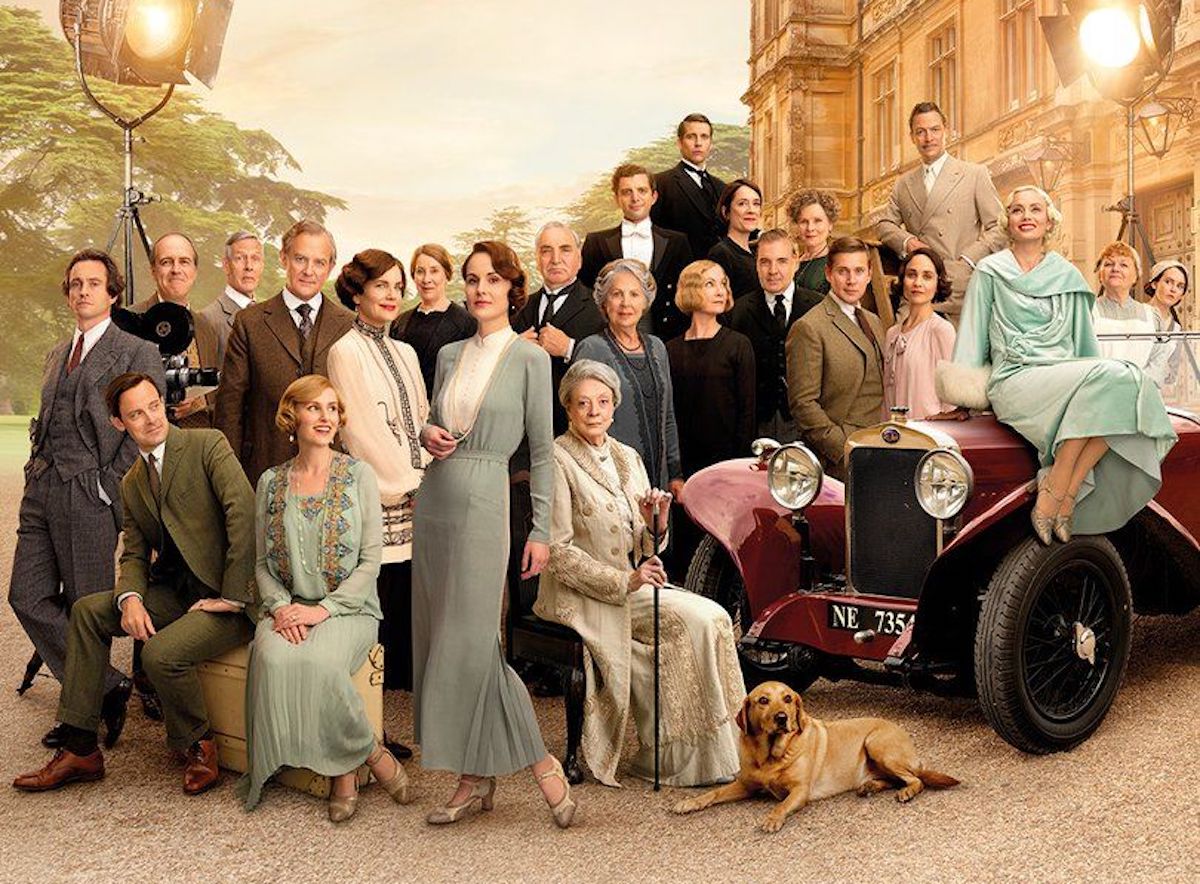Let’s Talk About ‘Downton Abbey: A New Era’s’ Well Earned, Emotional Farewell

Downton Abbey: A New Era picks up after the series’ previous film, and considering how we left many of our characters, there was only one real avenue for change left: death.
Spoilers for Downton Abbey: A New Era.
The one big emotional moment of the film was finally saying goodbye to Lady Violet, Dowager Countess of Grantham. Maggie Smith deserves rest and a big todo for her fictional death, and the result was emotional, well earned, and powerful—especially when so many of us have not been able to mourn anyone properly.
“In the first film, we sort of hinted that she was in her final chapter, if you like,” creator and screenwriter Julian Fellowes explained, as reported by Yahoo News. “And that didn’t seem enough to me. I felt she’d been so iconic a character since the show began and so part of its great success that I felt we all wanted to make much more of it. So, we decided it was time. It’s quite moving, really. I know I’m writing it and it’s my fault, but these characters become so real to you over the years.”
He added, “The passing of the character will be sad but appreciated by audiences. [People have] commented on the fact it feels timely. Although it’s incredibly upsetting, it feels like the right way to tell the story.” I agree. Maggie Smith’s role in the show has always been exceptional, but the character was in her 80s and needed to get a proper sendoff. Plus, Smith herself is 87 years old, has been working since the ’50s, and is one of the most celebrated and beloved actresses of her era, with the awards to prove it—she should be able to rest.
The impact of her loss to the fabric of the show was felt by everyone. Michelle Dockery (Lady Mary) reflected on the moment:
The hardest part was keeping my emotions at bay during those scenes and trying to be Mary in those scenes and not Michelle because it was such an emotional day. The silence on set — you could hear a pin drop. And it had been building. I think it was midway through the shoot, but that anticipation leading up to it was so emotional. I was sort of dreading it, actually. She’s been part of these last 12 years. We had to just hold back the tears before we could then let it go.
I remember Simon Curtis, at one point, came over to me and Laura [Carmichael], in that shot where we embraced each other. I remember Simon saying, ‘You can let it go now.’ It makes me emotional just talking about it.
I lost most of my grandparents before I was born, and the remaining ones were lost to me for medical reasons. While Lady Violet is far from my own Jamaican granny, I buried my great-aunt recently, who reminds me of Violet due to her wit, class, and ability to make you laugh at yourself. Those are the pillars of your world, and losing them is hard.
“Violet has lived a long and interesting life and has been a dominating matriarchal figure throughout, so she never had to feel disempowered,” Fellowes said. “I think one of the saddest aspects of old age can be the disempowerment of people who, actually in their prime, were interesting and useful and clever and productive. And suddenly they’re being made to feel like this rather burdensome person who has to have a cup of tea. In a way, I hope that Violet is a statement back from that. She didn’t ever become a burden in that way, and she always was consulted up to the moment of her death.”
Dignity to the very end. A fate we all deserve.
(via Vanity Fair, featured image: Focus Features)
Have a tip we should know? tips@themarysue.com